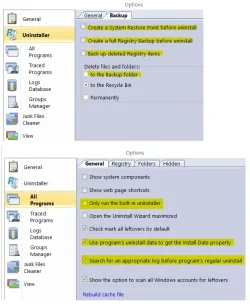- Local time
- 8:33 AM
- Posts
- 3,249
- Location
- San Francisco, California USA
- OS
- Windows XP/7/8/8.1/10/11, Linux, Android, FreeBSD Unix
There is no such thing as foolproof. You can create a infinite images but as the saying goes, life has no guarantees other than death and taxes which are both certain and guaranteed. Anything else depends more on your own fate. Same reason I have not made personal webpages since 1996 or so as everytime I make one, something bad always happen to it including the backups which is automated as these were on Unix servers that were backed up. One of the owners pissed off some hackers and basically they killed the entire Seagate Elite 8GB HDD by making it spin in reverse and it's been through like 20 data recovery houses and all of them saw all the physical damage on the discs themselves. At the end, Seagate replaced the drive with a new one but the data was gone. Data Recovery houses claims the recovery rate was 94%, so we were part of the 6% being unsuccessful.Neither one of both these two different methods can be considered reliable. Even though 'reasonable' is still only a subjective term, you'd have to create an image of the Windows partition to be able to call it reasonably safe.
Exactly. There are enough things that can break the system, which immediately helps to explain why avoiding to add more things that can break the system when there really is no need to add them makes all the perfect sense in the world. You could always decide to use Process Monitor to try and pinpoint what's causing the registry hives to become bloated. But if they're not bloated, the expression "much ado about nothing" springs to mind. Windows 11 version 24H2 runs better if it's dirty. Cleaning sickness causes it to poop on itself. You know. Stuff like that.
It depends how long you had the system and when the original registry is created so Process Monitor may or may not be needed since if your system originated since Windows 95 and basically you went through 95, 98, 98SE, ME, 2000, XP, Vista, 7, 8, 10 and 11, it can add up as I never clean install and I always just clone the HDD when upgrading the hardware. So it depends what one defines or considers as bloated and how much software is actually installed since if you have a large amount, you wouldn't be able to fix it if the registry really needed that size for all the installed software.
If it isn't bloated, then obviously, there is no point of cleaning it or compacting even periodically. Windows 11 24H2 seems to break for lots of people on both new and old systems when you read the threads. My only experience with 24H2 and that's the latest preview version back in September 2024 was the Acer I bought to fix my current system and then returned within the 30 day period in person for 100% money back was a system that shipped with Windows 11 Home, not sure what build it was but since it was not my system and they don't check other than for scratches and it won't be resold anyways, I upgraded it to 24H2 and it worked without any issues. The only thing I did was I accidentally after putting it on 24H2, to not save one of the Power Management Profiles it shipped with but that wasn't a real problem since I did a system reset before I returned it. So I guess frequently bloated and being bloated from a long term are two different things. The first one, you can probably use Process Monitor to figure it out but the other one is similar to wear and tear of something over a longer period of time which will be way harder to figure out. I'm on the Beta Insiders channel for my only system currently which is still 23H2 so there is no 24H2 option on Beta yet. I also run Canary on the same system under Hyper-V but don't have anything installed on it.
In the end, there is always benefits vs risks for everything. It's no different than some people cleaning their browser history multiple times a day but one bad thing might be what if they couldn't remember what site they found something on since remember it's not part of the backup either, and searches do not always show the same results. So with any situation, there will always be the good side and the bad side. It should be a personal choice which others should respect as why would someone really care what one does or does not do when the system is not theirs in the first place.
Last edited:
My Computer
System One
-
- OS
- Windows XP/7/8/8.1/10/11, Linux, Android, FreeBSD Unix
- Computer type
- Laptop
- Manufacturer/Model
- Dell XPS 15 9570
- CPU
- Intel® Core™ i7-8750H 8th Gen 2.2Ghz up to 4.1Ghz
- Motherboard
- Dell XPS 15 9570
- Memory
- 64GB using 2x32GB CL16 Mushkin redLine modules
- Graphics Card(s)
- Intel UHD 630 & NVIDIA GeForce GTX 1050 Ti with 4GB DDR5
- Sound Card
- Realtek ALC3266-CG
- Monitor(s) Displays
- 15.6" 4K Touch UltraHD 3840x2160 made by Sharp
- Screen Resolution
- 3840x2160
- Hard Drives
- Toshiba KXG60ZNV1T02 NVMe 1TB SSD
- PSU
- Dell XPS 15 9570
- Case
- Dell XPS 15 9570
- Cooling
- Stock
- Keyboard
- Stock
- Mouse
- SwitftPoint ProPoint
- Internet Speed
- Comcast/XFinity 1.44Gbps/42.5Mbps
- Browser
- Microsoft EDGE (Chromium based) & Google Chrome
- Antivirus
- Windows Defender that came with Windows










